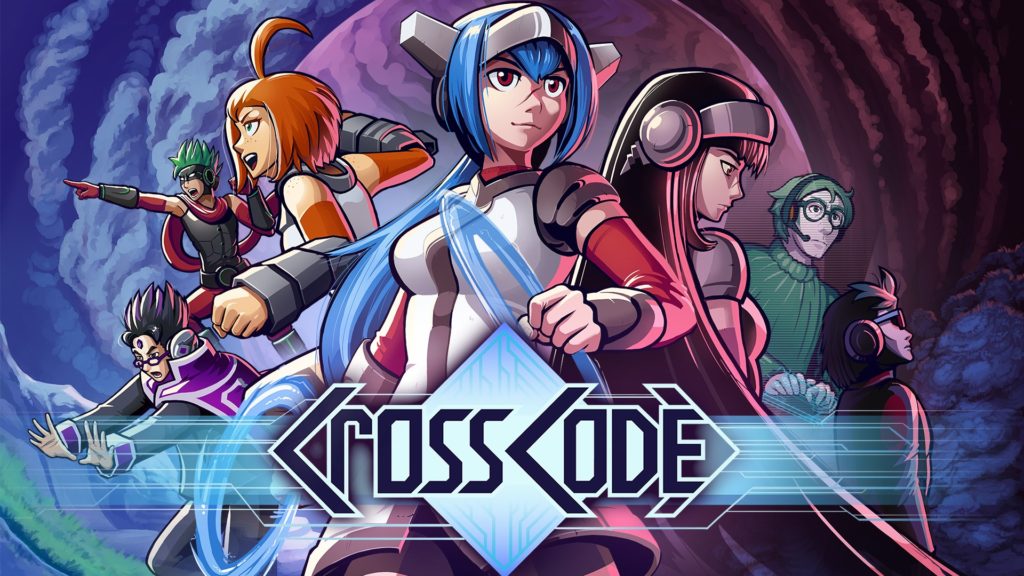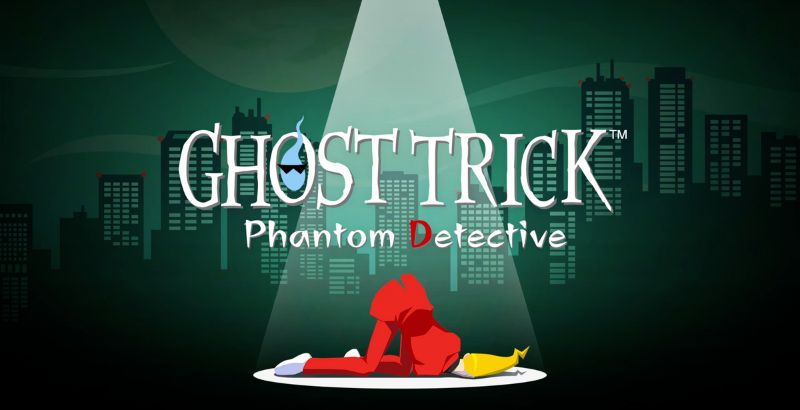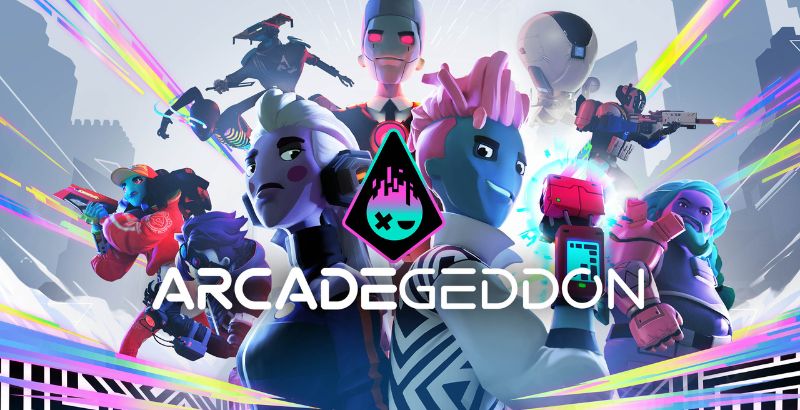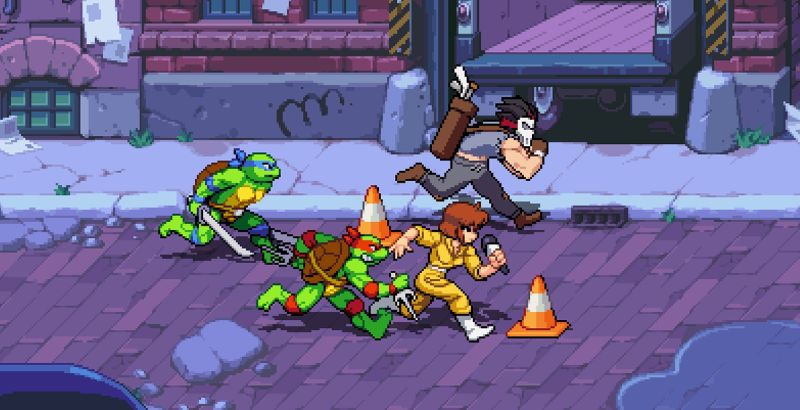
CrossCode, developed by Radical Fish Games and published by Deck13, is a retro-inspired 2D action RPG. Originally released on Steam in 2018, console versions for PlayStation 4, Nintendo Switch, and Xbox One are coming July 9. CrossCode is an incredible love letter to top-down SNES action RPGs, managing to bring the aesthetic and gameplay of the early 1990s to a modern era with unbelievably fluid controls and a fun world to explore.
In CrossCode, you play as a girl named Lea as she navigates a fictional MMORPG, called CrossWorlds, while trying to regain her memory. Because of this setup, there are two major parallel stories — Lea’s attempt to recover from amnesia and the main quests programmed into CrossWorld for players.
The premise of CrossCode is quite clever and I loved this idea of a game within a game. Initially, I was a little worried that it would come off as cheesy or forced, but your interactions within CrossWorld with other “players” and NPCs are always very well-written and engaging.It never felt too campy and there was a phenomenal sense of self-awareness, which helped the game take itself seriously during important story moments but also relax and let the goofiness of playing an MMORPG in a single-player game take over outside of these moments.

To progress in CrossCode you complete the main quests of CrossWorlds while slowly uncovering the truth about Lea’s lost memories. To do this, you must finish puzzles and dungeon bosses just like you would expect from a SNES-era 2D RPG and later games inspired by the genre.
The combat is incredibly fun and unique and feels amazingly fluid. Lea’s class in CrossWorlds is a spheromancer, meaning that you have two types of attacks: close-combat melee and long-range spheres. The melee weapons are useful in tight situations, but the game makes it very clear that your main focus should be long-range attacks. To use these attacks, you aim with the right analog stick and fire using the right trigger button. It takes a little while to get used to, but once you get the hang of it, it’s really awesome to take out swarms of enemies by moving, aiming, and firing off quick shots so fluidly.
Melee attacks, on the other hand, do seem to be a bit more powerful but are more dangerous to use since it lets enemies get closer to you. I ended up avoiding relying on melee unless I was in a tight spot and just needed to get foes away from me or I knew that I would be able to dodge quickly. The beautiful thing about CrossCode; however, is that it’s completely up to you what combat style you want to use in the end. Long-range attacks are still key to solving puzzles within dungeons and side quests, but there aren’t many enemies that are only vulnerable to one type of attack.
Overall, the combat in CrossCode isn’t super challenging unless it’s a boss fight, which are very reminiscent of retro games. They’re more difficult than any other enemy in the game by a wide margin. Typically, you need to pinpoint a specific weak spot, slowly taking down its enormous health bar bit by bit while skillfully dodging three or four different, powerful attack patterns.
With regular enemies, however, it’s mostly firing off shots and dodging until you’ve brought your opponents down. Strategy is useful, but definitely not required. That said, the puzzles in the game are incredibly well-designed and offer quite a bit of challenge, making the game feel even more reminiscent of early 1990s SNES RPGs. The puzzle mechanics are exactly what you would expect if you’ve played classic games like A Link to the Past or basically any top-down Game Boy game. Most of them involving figuring out how to shoot a specific target, moving things into place, or platforming across tricky chasms.
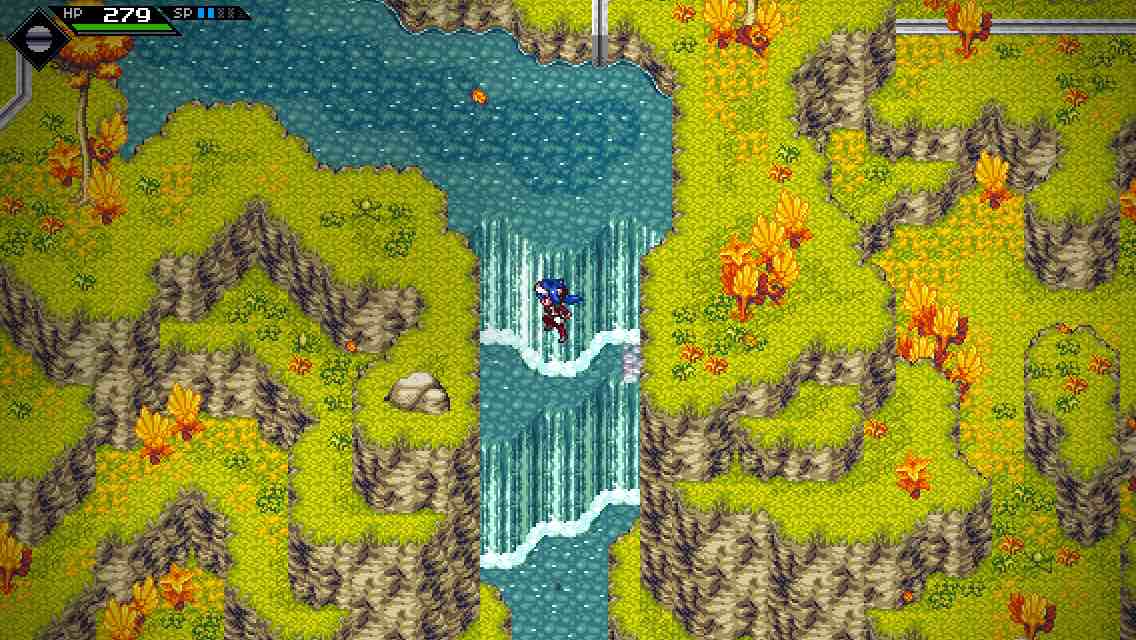
This doesn’t make them easy, however. The puzzles can get incredibly complex and interconnected, sometimes taking two, three, or even four rooms of a dungeon to find the proper solution and open the next big pathway. Like any game reliant on puzzles, I did occasionally feel frustrated that I couldn’t figure out the answer immediately. More often than not though, there was a phenomenal balance regarding difficulty. And, the sense of accomplishment that I felt after finishing levels in the dungeons was super rewarding.
This sense of accomplishment was present after side quests, too, of which CrossCode has no shortage. There are an amazing number of side quests in the game, each offering rewards in experience points and gold and occasionally other items. Most of the quests weren’t simple, either, and had multiple steps to undergo before it was considered complete.
Whenever I did have trouble with combat, it was normally because I was under-leveled. I found the best strategy to get over this hump was by finishing side quest after side quest. I really liked this mechanic in the game because it meant I could grind and get new levels without sitting on the map and mindlessly killing enemies over and over again. Each side quest gives you a recommended level that you should have before attempting the quest, which is a helpful guide to keep in mind while progressing through the game. There’s quite a bit of variety, too, as some quests revolve around dialog and world-building, while others are fetch quests or focus on combat.
As much as I loved the side quests in CrossCode, they’re also the source of my biggest gripe with the game. The fetch quests can be incredibly boring and difficult. Most of the items you’re asked to get in the fetch quests come from drops after defeating enemies, which, hypothetically I have no issue with. However, the drops can be rather infrequent, meaning that you’ll spend a ridiculous amount of time going back and forth on the map to respawn enemies just to get five items.
Overall, though, I have very few complaints with CrossCode. The music is reminiscent of all the 1990s SNES games I loved as a kid, the pixelated art style is well-done and great to look at, and the game feels exactly how I want a 2D top-down RPG to feel in 2020. It takes cues from games like A Link to the Past while updating the gameplay for modern audiences and controllers, all without losing its artistic charm and still paying tribute to beloved retro titles. I highly recommend CrossCode, especially for gamers who love older games and are looking for something new with that same retro vibe.
CrossCode is available now for Mac, Windows, and Linux, and will be available on July 9 for PlayStation 4, Xbox One, and Nintendo Switch. physical boxed version(s) can be pre-ordered here.
CrossCode
-
Rating - 8/108/10
TL;DR
he music is reminiscent of all the 1990s SNES games I loved as a kid, the pixelated art style is well-done and great to look at, and the game feels exactly how I want a 2D top-down RPG to feel in 2020. It takes cues from games like A Link to the Past while updating the gameplay for modern audiences and controllers, all without losing its artistic charm and still paying tribute to beloved retro titles.

